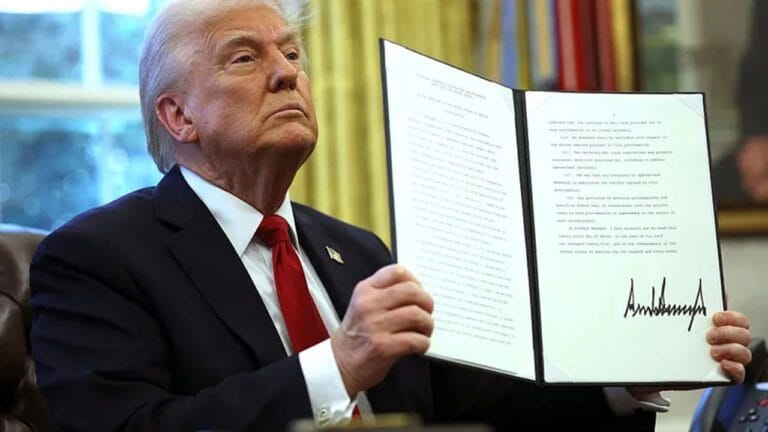🎧 Listen to This Article
President Donald Trump has announced a sweeping 25% tariff on imported automobiles, a move the White House claims will bolster domestic manufacturing while generating an estimated $100 billion annually in revenue. However, the tariffs—set to take effect on April 3, 2025—could significantly raise vehicle prices, disrupt global supply chains, and escalate trade tensions with key allies.
The tariff applies to both finished vehicles and auto parts, potentially increasing the cost of imported cars by an estimated $12,500 per vehicle. Economists warn that this could further fuel inflation and restrict consumer choice, disproportionately affecting middle- and working-class buyers. U.S. automakers, who rely on international suppliers, could also face higher production costs.
Foreign leaders have condemned the decision. Canadian Prime Minister Mark Carney called it a “direct attack,” while European Commission President Ursula von der Leyen warned of retaliatory measures. The European Union is expected to assess countermeasures, adding to an already tense trade environment.
As a potential relief measure, Trump floated a tax deduction for auto loan interest—available only for vehicles made in America. However, critics argue this would offset expected tariff revenues. Meanwhile, stock markets reacted sharply, with shares of major automakers like General Motors and Ford declining, while electric vehicle makers Tesla and Rivian saw gains.
With additional tariffs on industries like semiconductors and pharmaceuticals on the horizon, analysts predict further economic and diplomatic fallout in the coming weeks.
For further details, clarification, contributions, or any concerns regarding this article, please contact us at editorial@tax.news. We value your feedback and are committed to providing accurate and timely information. Please note that our privacy policy will handle all inquiries



